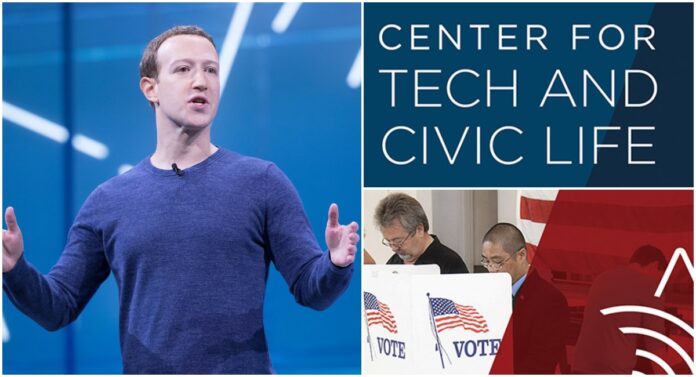In addition to challenging WEC’s decision in court, the Wisconsin Voter Alliance plans to go back before the Elections Commission to challenge the ‘Zuckerbucks’ funding under Wisconsin’s election bribery law.
The Wisconsin Elections Commission (WEC) has determined the so-called Zuckerbucks are not technically illegal.
Elections commissioners on Wednesday sided with a staff attorney who wrote “the Commission finds that the complaint does not raise probable cause to believe that a violation of law or abuse of discretion has occurred.”
Attorney Eric Kaardal, special counsel with the Thomas More Society representing the Wisconsin Voter Alliance, is challenging the $8.8 million the Mark Zuckerberg-funded Center for Tech and Civic Life sent to local election managers in Milwaukee, Madison, Green Bay, Racine, and Kenosha last year.
“I don’t think the Wisconsin Elections Commission clarified anything,” Kaardal told The Center Square Thursday.
But, Kaardal said the decision is needed in order to move the legal challenge to the Zuckerbucks into a courtroom.
“We just need to go to the circuit court judges and get them to agree that we can’t have election officials in Wisconsin taking $8.8 million for increasing votes in their respective jurisdictions without legislative approval,” Kaardal explained.
Kaardal plans to file his appeal to WEC’s decision in the next four to eight weeks, and hopes to have the case before a judge not long after that.
In addition to challenging WEC’s decision in court, Kaardal and the Wisconsin Voter Alliance plan to go back before the Elections Commission to challenge the Zuckerbucks funding under Wisconsin’s election bribery law.
“The 800-pound gorilla is the Wisconsin election bribery statute,” Kaardal said. “Wisconsin statute 12.11 really shows the commitment of Wisconsin lawmakers that they really don’t want people accepting money to induce voters to go to the polls.”
Kaardal said WEC “punted” on that question in its ruling on Wednesday.
“Why is this election bribery? Why in Wisconsin do we have a law that says a person can’t take money to induce people to go to the polls,” Kaardal asked. “I think the reason is that Wisconsin thinks it’s wrong, morally wrong and legally wrong, for public officials to go to the polls.”
Kaardall expects to file his election bribery challenge with the Elections Commission soon.
‘Zuckerbucks’
Wisconsin Right Now was the first to break the story on the activities of The Center for Tech and Civic Life and Michael Spitzer-Rubenstein during the Green Bay election in November 2020.
In the months leading up to November’s election, voting officials in major cities and counties worked with a progressive group funded by Facebook founder Mark Zuckerberg and its allies to create ballots, strategically target voters and develop “cure” letters in situations where mail-in ballots were in danger of being tossed out.
The Center for Tech and Civic Life provided millions of dollars in private funding for the elections that came from a $350 million donation from Zuckerberg and his wife, Priscilla Chan. The Center for Tech and Civic Life gave “COVID-19 response” grants of varying amounts to 2,500 municipalities in 49 states.
Several prominent Wisconsin state senators called for an investigation into the City of Green Bay’s handling of the November 2020 election, focusing in part on the activities of a liberal operative working for a group that partners with a Mark Zuckerberg-funded organization that gave massive election-related grants to five counties.
A Center for Tech and Civic Life partner, the Center for Civic Design, helped design absentee ballot forms and instructions, crafted voter registration letters for felons and tested automatic voter registration systems in several states, working alongside progressive activist groups in Michigan and directly with elections offices in Georgia and Utah.
In exchange for the money, elections divisions agreed to conduct their elections according to conditions set out by the Center for Tech and Civic Life, which is led by former members of the New Organizing Institute, a training center for progressive groups and Democratic campaigns.
Table of Contents































